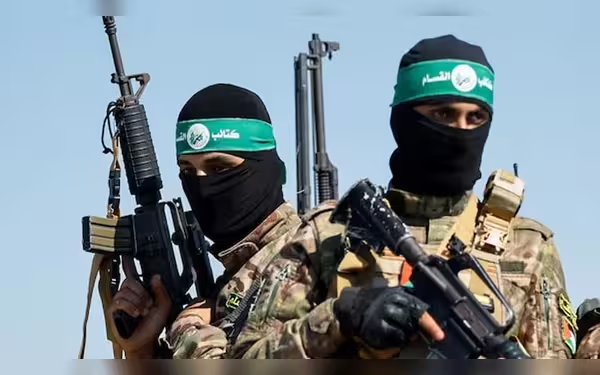Saturday, November 16, 2024 07:41 PM
Hezbollah and Hamas Leaders Assassinated During Gaza War
- Key Hezbollah and Hamas leaders targeted since October 7, 2023.
- Significant assassinations include Fuad Shukr and Ismail Haniyeh.
- Ongoing conflict raises questions about future peace prospects.
 Image Credits: geo
Image Credits: geoSince October 7, 2023, key Hezbollah and Hamas leaders have been assassinated, escalating the ongoing conflict in the region.
Since the onset of the Gaza war on October 7, 2023, the conflict between Israel and groups like Hezbollah and Hamas has escalated dramatically. This has led to a series of targeted assassinations of key leaders and commanders from these groups, raising tensions in the region. The situation has become increasingly complex, with accusations flying between Israel and its adversaries, particularly Hezbollah, which has accused Israel of conducting sophisticated operations across Lebanon.
One of the most significant assassinations occurred on July 30, 2023, when an Israeli strike in the southern suburbs of Beirut resulted in the death of Fuad Shukr, a top commander in Hezbollah. Shukr was known as the right-hand man of Hezbollah chief Sayyed Hassan Nasrallah and had been a prominent military figure since the group's inception over four decades ago. His involvement in the 1983 bombing of the US Marine barracks in Beirut had previously led to US sanctions against him.
Another notable figure, Mohammed Nasser, was killed in an Israeli airstrike on July 3, 2023. Israel claimed that Nasser was responsible for a unit that fired rockets from southwestern Lebanon into Israeli territory. His death was a significant blow to Hezbollah's operational capabilities along the border.
On June 12, 2023, senior Hezbollah field commander Abdallah was also killed in a strike attributed to Israel. He was in charge of operations in the central region of the southern border strip, and his assassination prompted Hezbollah to retaliate with a barrage of rockets aimed at Israel.
In Gaza, the situation was equally dire. On July 13, 2023, Israel's military claimed to have killed a key Hamas figure, Deif, in an airstrike in Khan Younis. Deif was believed to be one of the masterminds behind the October 7 attack on southern Israel, which ignited the current conflict. Despite Israel's claims, Hamas has not confirmed his death, leaving uncertainty surrounding his fate.
Another significant loss for Hamas was the assassination of Ismail Haniyeh on July 31, 2023, in Iran. Haniyeh was reportedly killed by a missile strike while staying at a state guesthouse. Interestingly, Israel has not claimed responsibility for this particular operation.
Most recently, on January 2, 2024, an Israeli drone strike in the southern suburbs of Beirut resulted in the death of Saleh al-Arouri, the Deputy Hamas chief and founder of the Qassam Brigades, Hamas's military wing. This assassination further underscores the ongoing and violent struggle between Israel and these militant groups.
The series of assassinations highlights the intense and often brutal nature of the conflict in the region. As both sides continue to engage in military operations, the potential for further escalation remains high. The loss of key leaders not only impacts the operational capabilities of these groups but also raises questions about the future of the conflict and the prospects for peace in the region. Understanding these dynamics is crucial for anyone looking to grasp the complexities of the ongoing situation in the Middle East.













